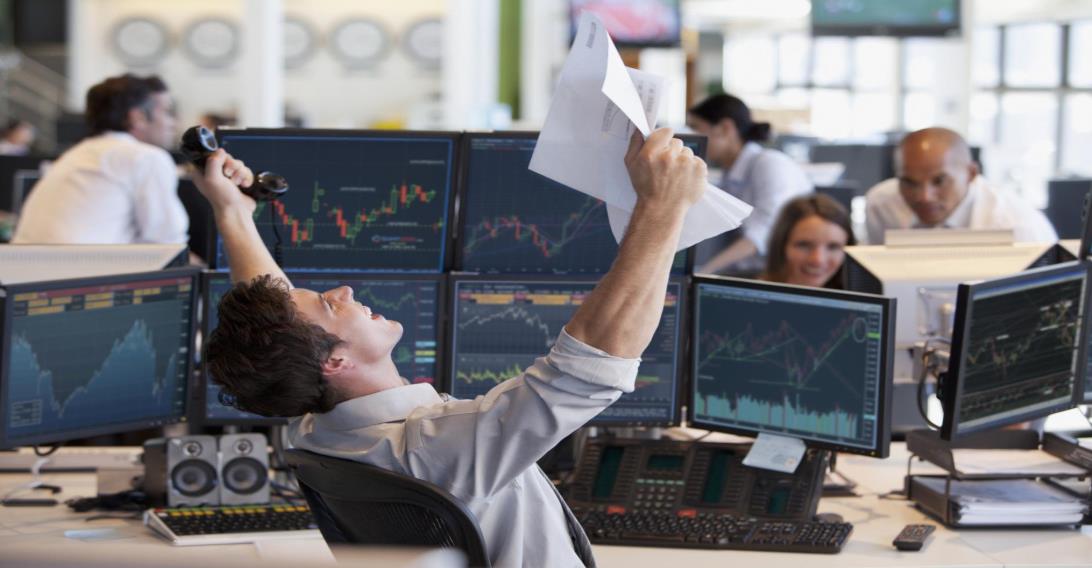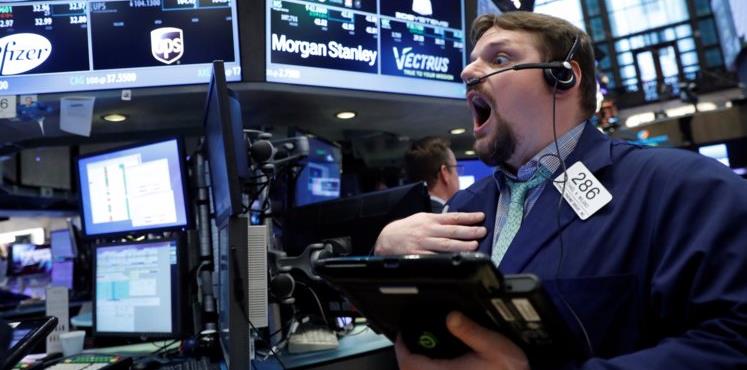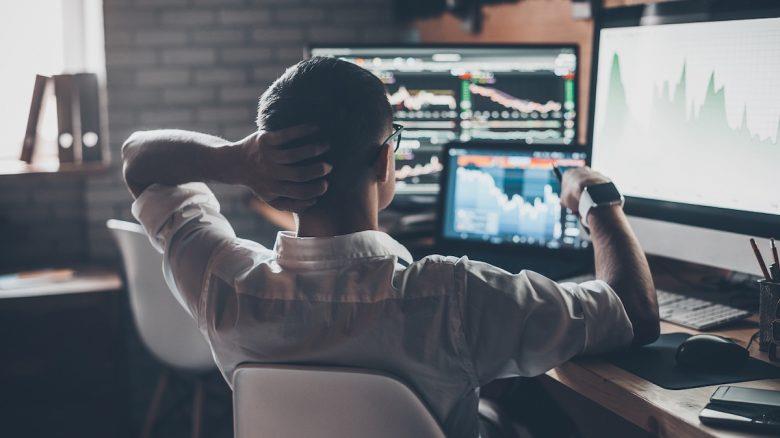Noise trader
The Nobel Prize winner, author of "Thinking Fast and Slow," Daniel Kahneman also introduced the two sides of his human psychology in System 1 and System 2. Although he is famous as an economist, the direction he is studying is actually the influence of human cognition on economic behavior. What he has done in an experiment is actually a poll, and the investigators have a large number of People with various academic backgrounds and knowledge backgrounds ask such a question:
If you encounter a deadly plague, there are 600 infected people, the first treatment can save 200 lives, the second method has 1/3 possible performance to save everyone's life, if you are the city The supervisor of the public health department, which method do you take?
We know that from a purely mathematical point of view, the expected value of the number of people who can be cured by these two methods is equal, but the result of the survey is that most people choose the first method, because after all, "two birds are in the forest, not as good as one." The bird is in the hand." Then Kahneman and his assistant changed the way to ask the same question. Of course, the background of the respondent and the former group was comparable, but not the same person. The question this time is:
The first treatment will kill 400 people, and the second method will have one-third of the possible performance to keep everyone's life, and of course it may kill everyone.
- Where is the Schnorr signature and the Taproot soft fork proposal?
- Breaking the blockchain impossible triangle (3) – POS and POW-DAG
- Video|"8Q" HashQuark Li Chen: PoW spelling power, hard core! PoS fights soft power and diversity!
Mathematically, this is no different from the first question in terms of content, except that 200 people were saved and 400 people died. However, this time most people choose the second method, because people always like to live and hate death. Compared with the certainty of death, people still prefer the method of hopeless birth.
Also in the investment market, the same reason, Kahneman told a case.
He gave the experimenter $50 and then took out a steel shackle: Are you willing to play a game with me? I throw a steel shovel. If the head is up, you can get another $50. If the head is down, give me $50. Of course, you can also refuse to gamble with me and take 50 dollars directly.
As a result, most people thought that it would be good to get a 50-dollar bill. If you play the game, you can't go back empty-handed, so you choose to take 50 dollars directly.
Next, Professor Kahneman did another experiment. Each participant gave them $100 before coming in. Then the door stood with a security guard. The professor still took out the steel shovel and said that if you participate in the game, steel With the hoe facing up, you can leave with this $100, and if you head down, leave empty.
However, if you refuse to play this game, the security guard will take $50 from you before leaving you. At this time, most people choose to gamble, because after all, being snatched away by 50 dollars is very uncomfortable, rather than a fight.
In the above two experiments, people who participated in the experiment chose to drop bags for security, or choose to gamble, in fact, the money they took is the same. In other words, those who choose to fall into the bag will always take away $50, and those who gamble take away $100 and the chance of returning empty-handed are 1/2. However, with different questions, everyone's reaction is different. This example is actually a variant of the above plague case.

Professor Kahneman went on to talk about the investment mentality of retail investors. If he bought the shares of Company A and Company B for $1,000 each, after one year the company's stock rose to $1,500, and Company B fell to $500.
Most retail investors are thinking that they have made a lot of money from company A's stock and should be down, so many people sell the company's stock, and company B's stock loses $500. If it is sold now. Really lost, so they stayed in their hands, they thought that as long as they did not sell, they would not lose money.
In fact, a company's stock decline usually indicates that the company is worse, and the probability of holding its stocks continues to fall is greater than going back. And a company with rising stocks is usually competitive in the same industry, and stocks continue to rise more likely than those that fall.
The behavior of retail investors is always to sell good stocks and leave bad stocks, so they will lose money forever for more than 200 years. This matter has nothing to do with intelligence. It is a human mindset. Therefore, good investors know that when investing, they must have extremely objective science and engineering thinking. That is to say, all judgments are based on facts and the results are not made. Assume beforehand.
This principle taught by Professor Kahneman can also be used in work and daily life. You can make people feel more happy by taking advantage of people's feelings of making money cheaply and not willing to lose money.
The same is true for the encryption market, because human nature is the same, but the subject matter is different. The only difference is that the encryption market is relatively early, and the price is even larger. The greed and fear of humanity are correspondingly magnified several times.
The place where retail investors gather is the rabble. Its English is Noise Trader, the so-called noise trader. The noun comes from the 80s and is based on the theory of traditional rational people.
In the traditional theoretical model, it is usually assumed that each investor will obtain sufficient and comprehensive information and then make rational decisions based on the information. But what does it actually look like? In fact, there are a large number of traders in our market who lack real information.
For example, ordinary people like us, or retail investors, the information we get is first and foremost, incomplete, and more people lack basic financial knowledge. You see a lot of newcomers even the founders of the currency, the total amount is not clear, just listen to some people flicker, then buy a stud, do the rich. If you say that you can buy mainstream currency, you are afraid to buy some funds and CX coins. In the end, you don’t know how to die. The encryption market is a big casino, although in a sense it is a casino. .

In the real world, the existence of noise traders will profoundly affect asset prices. Their bias in estimating asset value will be reflected in the price. For the simple example, Caesar has been buying OKB some time ago, but the price has been fluctuating. Too big, there is no follow-up market growth, there are retail investors, of course, including Caesar himself, after all, seeing others make money more difficult than their own money, mouth swearing, behavior is not deformed, has been falling has been jiacang, because understand that the currency is not It was wrongly killed by the market, but the retailers were wrongly killed. The retail investors hoped that the price of the currency would rise rapidly in the short term without any patience. Because they were manipulated by the dealers, most of the reason was that their individual retail investors were selling, which led to other retail investors. , further causing the price of the currency to fall. Believe me, when the price of the currency rises to a high level, the retail investors will not hesitate to buy it, and finally they will be trapped and the meat will be recycled.
In the big bull market carnival, if the valuation bias of many noise traders on the market is optimistic, that is to say they overestimate the asset price, how will the price of this market change? It will continue to rise, and the rising price will give the latecomer a more optimistic signal, attract more buyers to enter, and then lead to asset prices then rise, the bubble is blowing.
By the same token, if the valuation bias of many noise traders is pessimistic, what happens to the market price? It will continue to fall, and then give the latecomers a more pessimistic signal, causing more people to leave, or more people will wait and see, and asset prices will fall.
The emergence of the bull market and the bear market, so that the existence of a large number of noise traders will cause the market to form a feedback mechanism, resulting in the price deviating more and more from the real value, resulting in systematic valuation bias.
People ignore the existence of a class of people in the market. They are not like the chasing attitude of the retailers. They are big cyclers. For example, some people are constantly short-selling at the bitcoin position of 18,000 yuan in 2017. The market reversed and rose all the way to reach 140,000 yuan in December 2017. They will definitely not get on the bus. Even if Bitcoin falls back to 18,000 yuan in 2019, they will not continue to buy, so as to make up for the big bull market. It’s a shortcoming, because if they buy at 18,000 yuan, it means acknowledging the mistakes made in 2017.

They are too confident, and the market must go according to their ideas. Therefore, people who look at the bitcoin will not go to the bottom. Even if they fall to the price they want, they even think they will continue to fall. So, all the way, The mentality is unbalanced and smashed.
It happens often in our real life. It is difficult for you to ask retail investors to deeply understand long-term investment and value investment, because they may come from the hope of getting rich overnight, but they are not prepared to risk bankrupt overnight. According to Murphy's Law, when you are worried about bad When things happen to you, often bad things happen with great probability, because in the case of unbalanced mentality, our behavioral deformation is only a matter of time. Once the behavior is deformed, making stupid decisions is justified. There is nothing unexpected about it.
We will continue to update Blocking; if you have any questions or suggestions, please contact us!
Was this article helpful?
93 out of 132 found this helpful
Related articles
- Market Analysis: BTC continues to be at $8,000, the main force is more patient than expected
- Market Analysis: BTC continues to shrink, has to change?
- DeFi: Is it a new bottle of old wine, or is it a real future finance?
- PoW vs. PoS: Is the PoW consensus mechanism gradually abandoned?
- Analysis on the Supervision of Blockchain
- The conversion of the bulls and bears, the TOP20 mainstream encryption assets are reshuffled soon?
- Market Analysis: BTC oscillates in a narrow range, with the possibility of further adjustments




